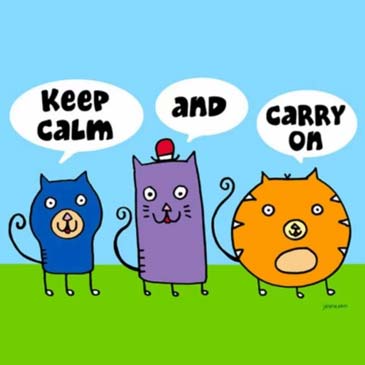Is a divorce right for you? Get the facts before you decide!
There’s nothing more hurtful than bickering, mistrust, anger, and hopelessness! Is divorce the solution?
Many individuals want to learn how to stop a divorce
Hi this is Abe Kass MA RSW RMFT CCHT,
Perhaps you have had enough relationship misery, and you want to know when to divorce. Or perhaps your wife wants a divorce, or your husband wants a divorce, or your partner wants to call it quits.
As a professional couple therapist with over 30 years of experience, I have helped thousands of unhappy couples find their way out of their relationship darkness. I have a message for you: DON’T GIVE UP! Marriage is science!
When you know the formula, you will then know how to build a respectful, loving, and lasting relationship.
Should I Get a Divorce?
Divorce is harmful to everyone in the family. However, accepting a bad marriage or committed relationship is also harmful.
This is why it is best to fix relationship problems. Then you will WANT to stay with your partner and avoid divorce or separation. (Below you will be presented with many resources to fix a broken relationship.) As you read and learn more, you will understand how divorce is harmful to everyone in the family.
Only when there are problems such as drug abuse, infidelity, financial abuse, emotional abuse, or violence that cannot be stopped, should divorce be seen as a reasonable option. Even in circumstances such as these, knowing when to divorce needs to be considered.
Considerations such as the age of the children, the financial outcome of a divorce, and social support are all important factors when deciding when to get a divorce.
Should You Get a Divorce?
Many individuals wonder, “Should I Get a Divorce?” Before you decide, learn the ‘scientific facts’ so you will understand what happens to individuals when they divorce.
Before you decide whether or not you should get divorced or separate from your partner, educate yourself about the consequences of a committed relationship breakup.
If your wife wants a divorce or your husband wants a divorce, share this information with them.
Everyone who wants a divorce should know ‘the scientific facts’ before they take irreversible action to dissolve their relationship.
The following scientific facts about divorce, being alone, and remarriage are taken from, Journal of Marital and Family Therapy, July 2018, Volume 44, Issue 3, Pages 512-526.
Divorce and Physical Health
On average, single individuals have 20% more occurrences of heart disease, diabetes, or cancer, and are 23% more likely to have mobility problems.
Interestingly, when remarried individuals are compared to individuals who have been continuously married, it was noted that the remarried individuals report significantly worse health.
Divorced individuals have a poorer prognosis for the diseases from which they suffer.
Divorce is a health risk comparable to smoking, high blood pressure, obesity, and physical inactivity.
Divorce and Mental Health
Divorced individuals experience more anxiety, depression, and loneliness than do people cohabiting within a committed relationship.
The period before a divorce, during the process of divorce, and until the divorce is finally implemented and all the extenuating legal issues resolved can take many years.
This divorce process can completely drain you emotionally due to fighting and accusations. It can drain you financially through spousal support, child support, therapy, assessments, and legal fees.
For most members of the family, these are years of stress, uncertainty, anger, and emotional pain. And often, some issues are never resolved in spite of time and effort and remain an ongoing source of pain and resentment.
For most unhappy couples, the goal should be to fix the relationship problems and stay together as a family, when doing so is reasonable and affords the greatest possibility of a positive outcome.

Children of Divorce — Physical and Mental Health
Children are easily injured when they see their parents arguing and being hurtful to one another.
Children whose parents divorce often witness many negative interactions between their parents before and after the separation.
Children of divorced parents are at a higher risk for poor physical health, engaging in risky behaviors, drug use, and sexual promiscuity.
In one study, approximately 20 to 25 percent of children experience long-term adjustment problems, compared to roughly 10 percent of children in first-marriage families. Clearly, the psychological effects of divorce on children is negative.
When one parent leaves the family, the quality of parenting typically changes for the worse. Instead of two adults caring for the children, there is now one, and often the sole parent is overwhelmed and resentful.
A parent’s stress, anxiety, anger, and loneliness impacts negatively on his or her children. A parent fearful of the future cannot be fully present in a child’s daily life.
One British national survey discovered that one-quarter of children living with their single mother had not seen their fathers the previous year.
In some tragic cases, children lose access to their father or mother.
When a family breaks apart, children may lose access to grandparents, aunts, uncles, and cousins.
Research shows that problems caused by a divorce last for a very long time in a child’s life.
Adult children of divorced parents suffer from higher rates of depression and have more emotional problems than adults whose parents stayed together in a committed relationship or marriage.
Children almost always suffer when there is a divorce.
When parents repair their broken marriage or committed relationship, their children are protected from the psychological effects of divorce on children.
Children and Divorce — What Happens When a Parent Remarries or Couples with a New Partner
Creating a blended family with your new partner's children, and your new partner building a relationship as a stepparent with your children is difficult.
For many individuals, being a stepparent is heart-wrenchingly difficult, and in spite of significant effort, it ends in failure. Children have a natural love for a birth parent — not a stepparent.
As well, an individual who remarries naturally resents the perceived interference in their new relationship by 'children who are not their own' (their stepchildren).
The many relationship complications that arise from trying to form a harmonious blended family has ruined many new partnerships that would otherwise have been successful and unexpectedly, the negative psychological effects of divorce on children become more pervasive.
Should remarriage or coupling with a new partner be your fate, it is essential you get the help of a qualified relationship specialist to assist you in forming a blended family with your children and their new stepparent.
Divorce has Many Adverse Consequences, but Living with Relationship Distress is also Harmful
Worldwide statistics show that 85% of people enter into a committed relationship by the age of 50 regardless of culture, country, or religion.
Scientists suggest that being in a committed relationship is an evolutionary driven urge.
Even though committed relationships are common, many couples experience relationship stress. In the United States, 31% of married couples characterize their relationship at any given time as stressed.
Typically, this relationship distress remains unless there is treatment to fix the specific problems.
Researchers have found that committed relationship distress is a significant factor in poor physical and mental health.
A Bad Committed Relationship and Physical Health
Relationship distress can lead to poor physical health.
Researchers speculate that one of the reasons for this result is, that poor quality relationships may lead to risky health behaviors such as smoking, using drugs, using alcohol, poor eating, and inadequate sleep.
Relationship researchers drawing from a comprehensive meta-analytic review from 126 studies show that marital discord was predictive of chronic fatigue, lower immune functioning, ulcers, chronic pain, atherosclerosis, hypertension, cardiovascular disorders, diabetes, and rheumatoid arthritis.
The link between relationship distress and poor health is so strong that it has been identified as a greater risk factor for health problems than smoking or drinking alcohol.
One study found a significant association between committed relationship distress and increased hospital and doctor office visits. For these individuals, there was an increase in using medication.
A Bad Committed Relationship and Mental Health
Researchers have documented that relationship distress is associated with an increase in the utilization of mental health services.
Adults in distressed relationships were 70% more likely to seek mental health services than adults in non-distressed relationships.
In particular, those individuals in distressed relationships had a 40% more likelihood of experiencing anxiety, a mood disorder, or substance abuse disorder, than those individuals in happy relationships.
Infidelity and domestic violence, in particular, are significant predictors of major depression.
Relationship distress is predictive of a 69% greater likelihood of an anxiety disorder compared to happily married individuals.
When Possible, Most Broken Relationships Can And Should Be Fixed!
When there is marital or committed relationship distress, it should be every couple’s goal to avoid separation and divorce and protect their children from the clear and undisputed negative psychological effects of divorce on children.
If the relationship includes ‘relationship sins’ such as cheating or emotional abuse, the challenges to staying together will be much more difficult. However, it may be possible with effort and commitment to remain together.
People can change for the better.
Look around, and you will find many examples of individuals who have reformed their lives and become far better individuals than they had been in the past.
If you decide to stick with your partner because you have decided getting divorced is not a reasonable option, you should also conclude that living in a bad marriage or committed relationship is also not a reasonable option.
Living in relationship conflict and distress is extremely harmful and is not a reasonable alternative to divorce. Instead, the only sane thing to do is to repair your relationship.
You may not make your relationship perfect, but you can improve it and make it a far better option than either divorcing or living in a bad marriage or a bad committed relationship.
We have discussed how damaging divorce is and how harmful it is to stay in a stressful marriage or stressful committed relationship. Now, let’s look at solutions to your relationship problems and how to stop a divorce or separation.
Solutions to a Bad Marriage or Committed Relationship
Fixing a broken marriage or committed relationship should be ‘Plan A’ (your first choice). This should be your preferred solution to relationship conflict, distress, and trauma and a clear answer to your question, “Should I get a divorce?”
Plan A is not always possible. However, you should at least try with sincerity, effort, commitment, and when necessary, with a qualified relationship specialist’s assistance.
Couple Therapy
Research has shown the effectiveness of couple therapy in decreasing relationship distress.
Positive change is reported by 70% of couples who took part in relationship therapy.
Research suggests that the gains achieved during couple therapy last for months and even years following treatment completion. The evidence for the efficacy of couple therapy is strong.
The therapist you are considering working with must have specialized relationship training. Unfortunately, far too many ‘relationship therapists’ have no academic training, nor supervised experience working with couples.
Therapists trained to work with individuals are NOT qualified to work with couples.
Those therapists have been trained to work with individuals who are depressed, anxious, or have mood or personality disorders — not with couples who have ‘relationship problems.’
A couple is a third entity with its own unique dynamics, and only a therapist trained in relationship therapy can effectively help individuals who require help with their marriage or committed relationship.
You can find qualified relationship specialists here:
Couple Education
Couple education typically works with couples during a period when they are getting along. This is what distinguishes it from couple’s therapy.
Couple education teaches communication, problem-solving skills, household management, and intimacy, etc.
There is a strong correlation between couple education and positive outcomes.
Research has shown that those couples who have engaged in relationship education have improved problem-solving skills, have lower levels of marital discord, and report improved relationship satisfaction, which leads to a diminished likelihood of divorce.
Here are three well-established research-based couple education programs. They offer classes and online services:
If you have a broken marriage or committed relationship, it is best to find practical solutions to your relationship problems. Go to our Relationship Builders Action Plan page and learn how you and your partner can improve. People and relationships do change for the better.
A good relationship is based on scientific principles. When you follow specific rules, you can have a loving, healthy, and long-lasting relationship.
Should I Get a Divorce? For most couples, the answer is NO.
Wishing you and your family the best,
Couple and Family Therapist, Abe Kass MA RSW RMFT CCHT
Reference: Learn what science says about divorce. Based on metadata from the Journal of Marital and Family Therapy, July 2018, Volume 44, Issue 3, Pages 512-526.




